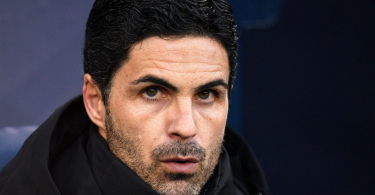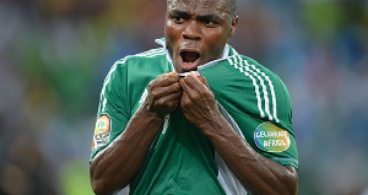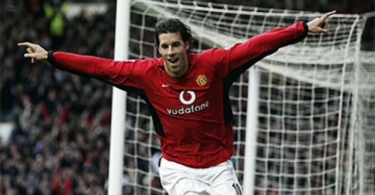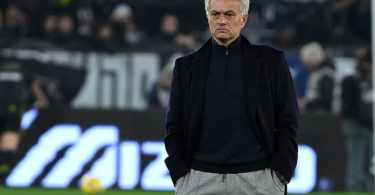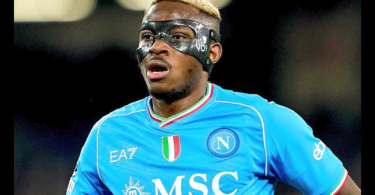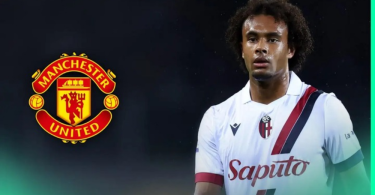World Cup 2022: The five talking points out of Qatar after day two of action
As was expected, what happened off the pitch was arguably the most interesting element of the second day of football action at the World Cup.
Despite the fact drawcards like England and the Netherlands were playing, the focus was squarely in the stands and around the stadiums as the first full day of action got underway.
From gutsy protests to some quirky bookkeeping, these are the five biggest talking points out of Qatar for Tuesday.
1. ‘Official’ attendance figures raise eyebrows worldwide
Sporting organisations have been fudging attendance numbers well before the very first click of the turnstiles echoed throughout a half-empty stadium — but what we’ve seen out of Qatar so far has been audacious to say the least.
The official crowds for the three matches held on day two of the tournament were 67,372, 45,334, and 41,721.
Great numbers, right?
The only problem is that the capacities for the three stadiums that were used are 60,000, 40,000, and 40,000 — and given several pictures taken of the crowds during the matches showed plenty of empty seats dotted throughout — something doesn’t quite add up.
Tweaking the numbers to make the attendance look a little bit better is one thing.
Pumping the stadium full of ghost fans to the point the audience exceeds capacity is another thing altogether. It’s a bold strategy, Cotton, let’s see how it plays out.
2. Rainbow ban extends off the field
While England and several other teams had threatened to wear rainbow armbands supporting the LGBTQ+ community, that particular protest didn’t eventuate after FIFA warned team captains they would be yellow-carded straight off the bat.
Instead, English footballer Alex Scott donned the armband on the sidelines while working for the BBC to show her support for the cause.
“I don’t think it’s fair on the players to do this on the morning of the game, they have done incredible work, they knew the rules, it could be one of the biggest games they play, all the players should be thinking about is how to win the game,” she said.
“It would have made a strong statement — imagine if Harry came out wearing the armband.”
Former Manchester United star Roy Keane wasn’t impressed with decision to not cop the yellow.
“I think the players could have done it for the first game — took the punishment, whatever that might be,” he said.
“If it’s Kane, you’re risking getting a yellow card, but that would have been a great statement.
“Do it for the first game, get your yellow card and what a message that would have been. Take your medicine and in the next game you move on.”
Meanwhile, American soccer journalist Grant Wahl was detained outside Ahmad bin Ali Stadium for wearing a T-shirt that had a ball outlined with a rainbow, before being released after 25 minutes, while Welsh fans claimed female supporters wearing rainbow bucket hats were forced to give them up to security.
Watch this space — it could all get uglier than it already is.
3. England banishes any jitters with swaggering display
Sure, it was “only” Iran, but the English football team have come into World Cups before a little overconfident or undercooked.
A 6-2 win against the Asian side will fill Gareth Southgate’s side with confidence and give them a strong platform to progress through the group stage.
That may not seem like much, but Group B could have proven a tricky one, with Wales and the USA showing in the later game they are both motivated and skilful sides.
Southgate will be thrilled that a couple of his young starlets like Jude Bellingham and Bukayo Saka shone brightly and found the net.
There could still be hiccups in the group, but at least the pressure is relieved for the next game against USA.
Still, it’s far too early to be talking about football coming or going anywhere. Previous tournaments have taught us it’s worth waiting until the group stage is over before we start making sweeping predictions.
4. Why is there so much added time in Qatar?
No, you don’t need to break out the Stephen Hawking or Albert Einstein texts, time is not being bent or stretched in Qatar.
But fans have noticed there is an awful lot of stoppage time being added by referees at the end of halves at the tournament — well beyond 10 minutes instead of the usual four or five.
There had been a hint before the World Cup that this might happen.
Chairman of the FIFA referees committee, Pierluigi Collina, told ESPN that in the past, not enough time had been added at the end of halves.
“If you want more active time, we need to be ready to see this kind of additional time given. Think of a match with three goals scored. A celebration normally takes one, one-and-a-half minutes, so with three goals scored, you lose five or six minutes,” the refereeing great said.
“What we want to do is accurately calculate the added time at the end of each half. It can be the fourth official to do that, we were successful in Russia and we expect the same in Qatar.
“I am not talking about VAR intervention, this is something which is different and calculated by the Video Assistant Referee in a very precise way.
“Even at the time I was a referee, the info [on added time] came from the fourth official, you are too much focused on what’s going on that it’s possible not to consider something. It’s the fourth official who usually proposes the amount of added time and the referee tends to decide … and decides.”
5. Iranians protest on and off the field
While much of the focus has been around what’s going on in Qatar, Iranian players reminded football fans of what’s going on in their own country by refusing to sing their national anthem.
Standing stoically throughout ahead of their clash with England, it was a powerful moment in support of Iranian women — and it was censored on Iranian TV.
In the crowd, supporters held up signs saying “freedom for Iran” and “woman, life, freedom”.
Iran would go down to England 6-2 after goalkeeper Alireza Beiranvand was knocked out during a head clash with a teammate.
It was a deflating result for the team, but what happened either side of the whistles was the more important moment for the country.
Space to play or pause, M to mute, left and right arrows to seek, up and down arrows for volume.


